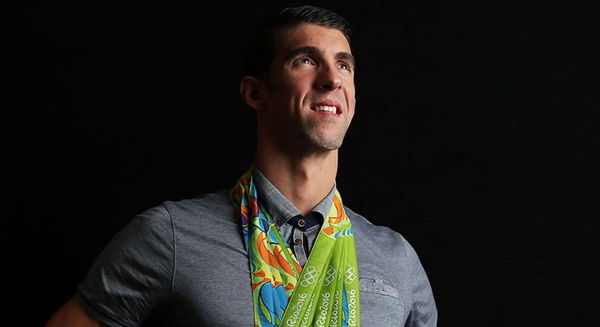

With 23 Olympic gold medals and numerous records to his name, Michael Phelps has bypassed all his competitors far behind. But a deep struggle was hidden within those graceful splashes around the Olympic pool. For the longest time, Phelps’ career has been interspersed with mental health battles. And with the rise to unimaginable heights, it took a toll on his mental health. So much so that even today, after his retirement, he struggles with anxiety and depression.
For the legendary Olympic champion, depression was just another weakness his competitors could exploit. Such thinking prevented him from seeking the help he needed for the longest time. Phelps could gather the courage to seek help only after acknowledging his vulnerability. There was a time when Michael Phelps viewed himself as an athlete, not a person with emotions. He has come a long way since then. The 39-year-old’s extraordinary mental health journey is full of ups and downs. In this journey, he has found unwavering support in a particular friend.
ADVERTISEMENT
Article continues below this ad
Michael Phelps’ & Jay Glazer’s story of true camaraderie
In a May 2024 interview with NBC’s Kristen Welker, the multi-medalist got candid about his struggles with anxiety, depression, and a brief spell of suicidal thoughts, especially following his second DUI arrest in 2014. Although there are times he struggles to this day, as he mentions in the interview: “There are 10 days spells where every day is a struggle”, Phelps is in a much better frame of mind, thanks to the professional help he received, his family, and of course, his friend, Jay Glazer.

In Michael Phelps’ journey to recovery, sports reporter and TV personality, Jay Glazer provided unparalleled support. The swimming sensation has referred to Glazer as his “mental health buddy”. The two friends, with their similar struggles, never fail to reach out to one another during tough moments. As Phelps states, “When it happens, for me I reach out to him, and when it happens to him, he reaches out to me”. Phelps had informed Glazer of his resolute decision never to quit, no matter what happens, “I am never f****ing quitting, ever in my life, that’s not who I am”.
ADVERTISEMENT
Article continues below this ad
Bouts of depression hit Phelps like a truck when, after his phenomenal Olympic performances in Athens, Beijing, and London, he felt there was nothing left to achieve. When an Olympic champion of Phelps’ stature speaks out about his mental health challenges, young and budding athletes are encouraged to talk about any struggles they could be facing. To this day, the swimming champion and the sports reporter continue to rally around mental health awareness, especially for athletes.
What’s your perspective on:
Is the US Olympic Committee doing enough to support athletes' mental health, or is more needed?
Have an interesting take?
Phelps’ mental health advocacy continues
The Baltimore swimmer is just one of the many stellar athletes who have struggled with their mental health. Serena Williams has frequently spoken up about postpartum depression and anxiety. Simone Biles is a vocal advocate of mental health awareness following her struggle with “twisties”. All of these cases beg whether the US Olympic Committee is doing enough for the mental health of its athletes. The swimmer mentions, “There needs to be more”, and makes it clear that a change can only happen when the athletes are prioritized.
ADVERTISEMENT
Article continues below this ad
Phelps continues to work towards the destigmatization of mental illness. The Michael Phelps Foundation, founded in 2008, draws upon the swimming sensation’s advocacy for mental health awareness. To that end, it offers eight emotional health lessons to educators and caregivers so that children can become strong from within. In 2018, the Olympic champion partnered with Talkspace, an NYC-based company that provides online therapy to people battling with mental health issues.
The Olympic champion was honored with the Morton E. Ruderman Award in Inclusion in 2019 for his advocacy. Michael Phelps expressed his gratitude to the Ruderman Family Foundation for “their continued efforts to help eliminate the shame and stigma that surrounds mental illness.” Michael Phelps’ mental health buddy, Jay Glazer, through his book and podcast, both titled ‘Unbreakable‘, continues to encourage dialogues around mental health awareness. We sincerely hope everyone finds a buddy like Jay so they never have to fight their battles alone!
ADVERTISEMENT
ADVERTISEMENT
ADVERTISEMENT
ADVERTISEMENT


Is the US Olympic Committee doing enough to support athletes' mental health, or is more needed?